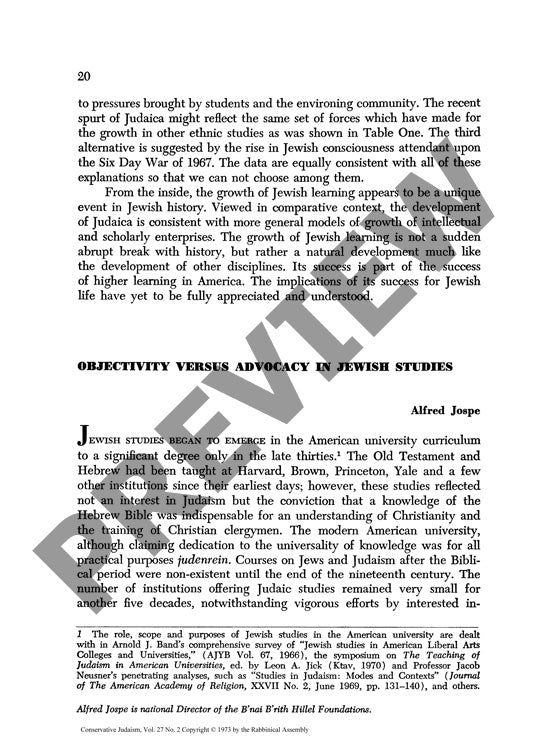Objectivity Versus Advocacy in Jewish St
Couldn't load pickup availability
The tension between academic objectivity and cultural advocacy has shaped Jewish studies programs since their transformation from biblical training for Christian clergy into mainstream university disciplines. Drawing on a 1972 Hillel survey of over 350 institutions, alongside historical analysis and comparative data from parallel ethnic studies programs, this research reveals how Jewish studies expanded dramatically after World War II. This growth stemmed from increased Jewish self-awareness following the Holocaust, democratized university admissions, and broader acceptance of ethnic studies. A fundamental conflict emerged between students seeking identity affirmation and academic demands for objective scholarship. The analysis examines institutional, demographic, and political factors driving this evolution, demonstrating that Jewish studies programs must maintain rigorous academic standards while acknowledging the distinction between knowledge acquisition and religious or ethnic commitment. The emergence of Free Jewish Universities on over thirty campuses offers an alternative model addressing students' needs for personal engagement. Moving forward, interdisciplinary approaches, centralized placement services, and transition from community-based funding to institutional university support will be crucial for maintaining academic legitimacy and ensuring long-term sustainability.

More Information
-
Physical Description
-
Publication Information
Published 1973
ISBN
-
Publication Credits
Alfred Jospe

